 Research Update
Research Update
15
MarchOn the morning of March 11th 2017, the second Symposium on “Think Tank Development and Public Opinion Communication” and Launching Ceremony of NADS English Website were successfully held at Renmin University of China. Joined the symposium were media representatives from Study Times, Guangming Online, Xinhua News, Guangming Daily, CNR, Ta Kung Online, Tencent Online and etc. as well as experts and scholars from the Counsellor’s office of the State Council, Chinese Academy of Social Sciences, China Social Sciences Press, China Development Research Foundation, Center for International Publishing Group and other institutions. The themes of discussion were challenges and opportunities faced by Chinese think tanks under new circumstances and how to promote global influence through public opinion dissemination. The participants also witnessed the official launching of NADS English website (http://nads.ruc.edu.cn/en/).
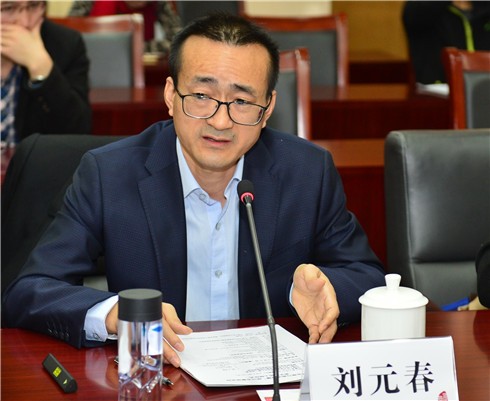
Liu Yuanchun, the vice president of RUC and executive dean of NADS, pointed out that the frequent happening of black swan events have posed challenges for traditional think tanks research modes, especially for traditional thinking patterns of elite groups. This is due to the fundamental change of motives for global social activities and also the change of ways of communication brought by new technologies. Therefore, it is urgent to adjust the knowledge structure of think tanks experts, and patterns of information searching and transmission. Liu also pointed out that since the 18th CPC National Congress, our national rejuvenation has reached a vital point, imposing more demand for national high-end think tanks. The qualified high-end think tanks should firstly base themselves in practice, keep up with the date and generate insightful and innovative products. Secondly, they should improve communication, tell China’s stories and construct China’s discourse power system. This is a good starting point for China’s think tanks to construct their discourse power system, to realize corner overtaking and framework restructuring.
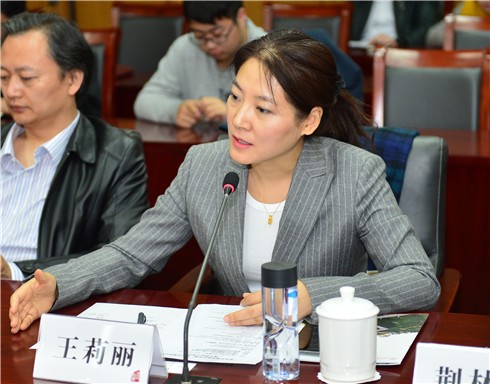
Wang Lili, deputy dean of NADS, presided the seminar and pointed out that international politics and economy are in the stage of radical change. China is playing an increasingly important role in the future world order and global governance. Under that historical and international circumstance, it is vital to improve national soft power and global influence through think tanks. The international communication of think tanks should follow traditional rules and meet the need of the market. Based on our national interests, effective public opinion dissemination relies on characteristic think tanks products and also various ways of information transmission.
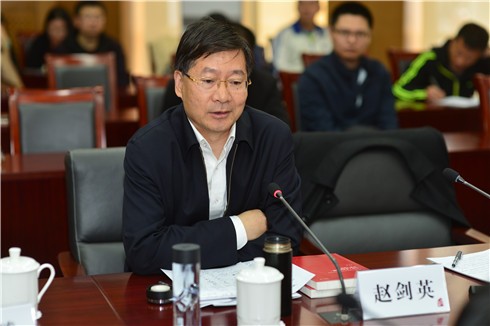
Zhao Jianying, proprieter and chief editor of China Social Sciences Press, thought that think tank research achievement used to be exclusively transmitted through certain channels. As China is building its new and characteristic think tanks, research achievement is increasingly required to be openly published and transmitted. To promote the influence of think tank achievement, our products need to be more professional, meet the need of the public and also fit the international arena.
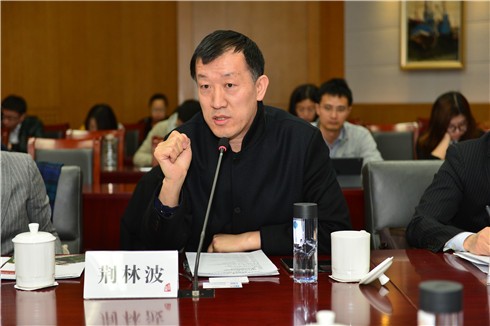
Jing Linbo, director of social sciences comment center from Chinese Academy of Social Sciences, thought that think tanks should consolidate themselves and make good use of media so as to improve their ability to set international agenda. Unidirectional transmission can also be transferred to bidirectional and multi-directional communication. Besides, we also need to conquer streaming media reading, fragmented reading, the pursuit of pure perceptual knowledge and other barriers.
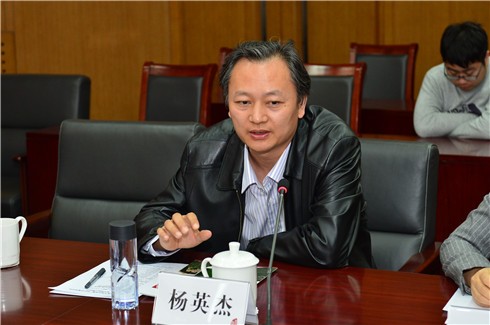
Yang Yingjie, deputy editor-in-chief of Study Times from the Party School of CCCPC, pointed out that now the power game is centered on public opinion and language, and it is a mindset competition. In order to improve think tank influence and communication, we should firstly sort out the general problems China is facing. Secondly, we need to tell China’s stories and realize the transfer among political language, academic language and social language. Thirdly, we need to make China’s path clear. The foreign audience will acknowledge our choice by recognizing China’s problems, reading China’s stories and making clear of China’s status quo.
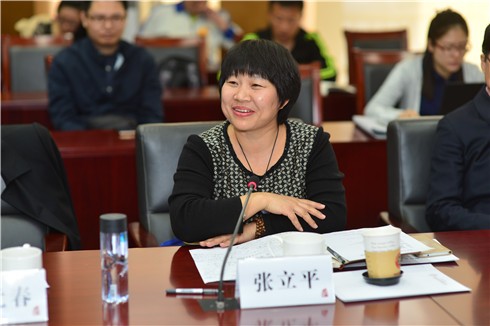
Zhang Liping, deputy director of the Counsellor’s office of the State Council, said that our nation is embracing a thriving period of development and we are increasingly engaged in the construction of global say that is supported by power. Think tanks are important driving force so they need to innovation to provide new solutions.
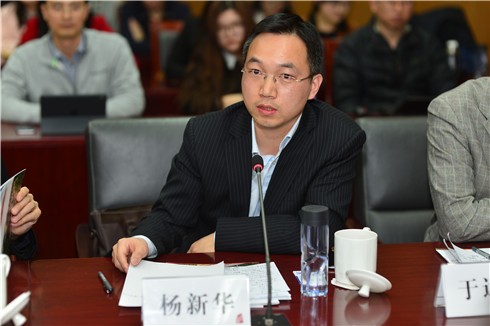
Yang Xinhua, deputy editor-in-chief of Xinhua News, think tanks and media share the function of connector, connecting the official and the public, home and abroad, now and future. Black swan events in fact are misjudgment caused by lack of preparation and asymmetric information. Think tanks provide valuable products and media serves as transmission carrier, so they share the common responsibility and interests.
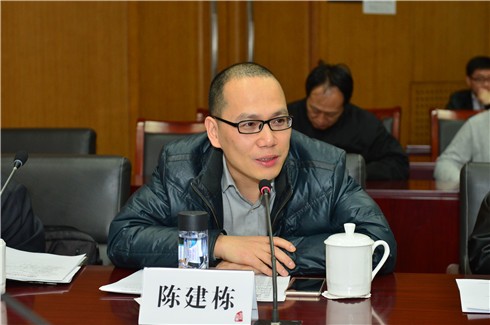
Chen Jiandong, deputy president of Guangming Online, said that new media should return to their nature, which is valuable and informative content. Therefore, think tanks research results need to be timely and targeted. Think tanks should also encompass the courage and ability to face problems, raise questions and solve problems.
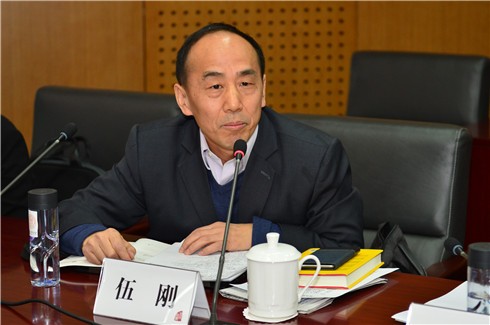
Wu Gang, deputy president of CNR, concluded the meaning of think tanks to “Return to Origin, March into Future”. The origin refers to China’s origin spirits. It worth our thinking about how to return to origin and construct the current voice system. On the other hand, think tanks need to improve power of transmission to march into future and present major topics in a way that is favored by the general public.
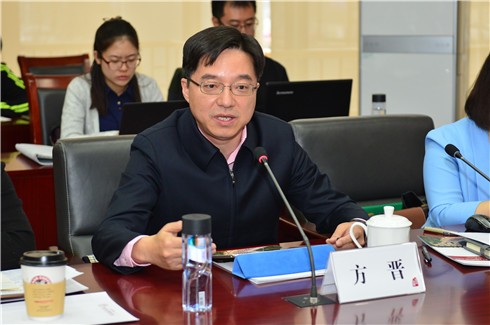
Fang Jin, deputy secretary general of China Development Research Foundation, thought that China’s think tanks are facing an unprecedented situation, along with opportunities and challenges. During these years, despite the mounting momentum of China’s think tanks development, the overall level are differentiated and cannot fully meet the need of consultation. At the same time, the development of think tanks is closely related to communication. All-rounded communication needs us to make targeted arrangement in terms of content, target audience and channels.
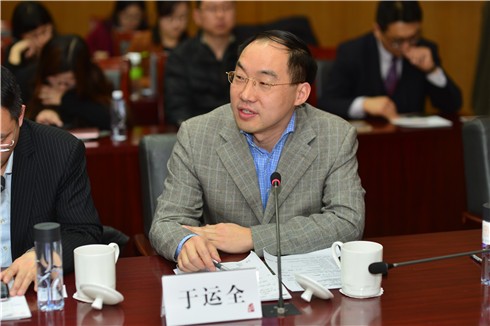
Yu Yunquan, deputy director of Center for International Communication Studies, thought that there was uneven efforts distribution in think tank transmission: too much interpretation of major topics while little about guidance and assessment; relatively more China-engaged topics than global topics; more for the official than for the public; much more ways to connect the higher authority than ways to conduct down-to-earth research. There are also problems like the lack of use of new media, lack of attention on commercial media, and also the preference of elite opinion rather than mass communication.
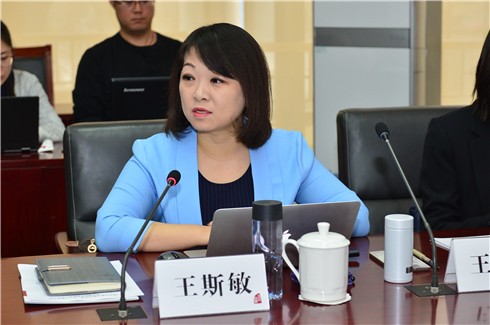
Wang Simin, deputy director of center on think tank research and publishing from Guangming Daily and editor-in-chief, pointed out that to improve global influence, think tanks should firstly have solid research and opinions. Secondly, media should change their way of expression, to be exactly, not to blindly appeal to the audience/readers or to stay afar from international audience, so as to ensure the transmission of advantageous products.
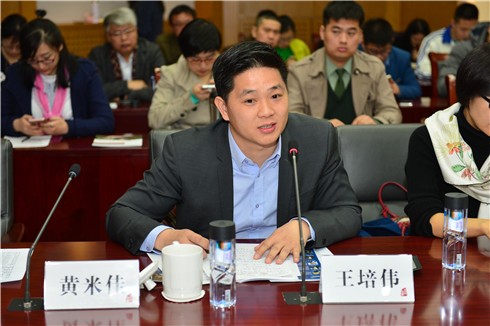
Wang Peiwei, deputy editor-in-chief from Ta Kung Online, thought that the value of think tanks is more and more pre-eminent with more demand from national departments and enterprise. Think tanks should grab their advantage and show their characteristics. Media could improve the products through expert’s discussion and research, and come up with new topics and thoughts. The goal is to link media and think tank experts.
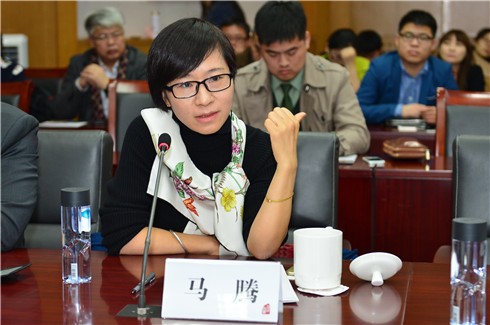
Ma Teng, deputy editor-in-chief of Tencent Online, thought that think tanks should pay great attention to the pace, strong communication ability and innovation of institutional mechanism. At the same time, think tanks should particularly note social media and its role in transmitting think tanks achievement.
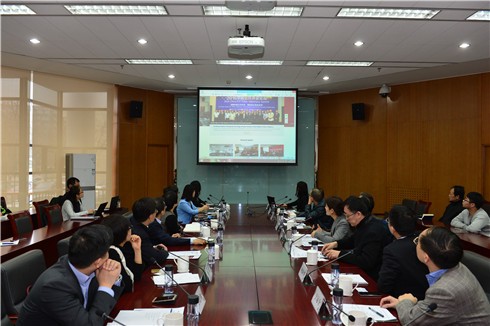
During the seminar, the participants also witness the launching of NADS English website. Upon the click of Liu Yuanchun, the website saw the light and went public. Wang Lili said the website design and content construction were audience-centered and was based on new media thinking. The page design also drew from international high-end think tank websites, laying emphasis on the importance of visual symbols in information transmission. The website, as a one-stop media convergence platform, also take audience’s reading habits, convenience and interaction of information gathering into consideration in the content design.
This seminar was hosted by NADS, RUC and co-hosted by the Center for Research on Global Public Diplomacy. Established in June, 2013, NADS is a new characteristic think tank integrating knowledge and resources of Renmin University. Since its establishment, NADS has made a series of achievement in thinking innovation, policy-making consultation and public enlightening. In December, 2015, NADS was selected as one of the first group of high-end think tanks trails instructions.